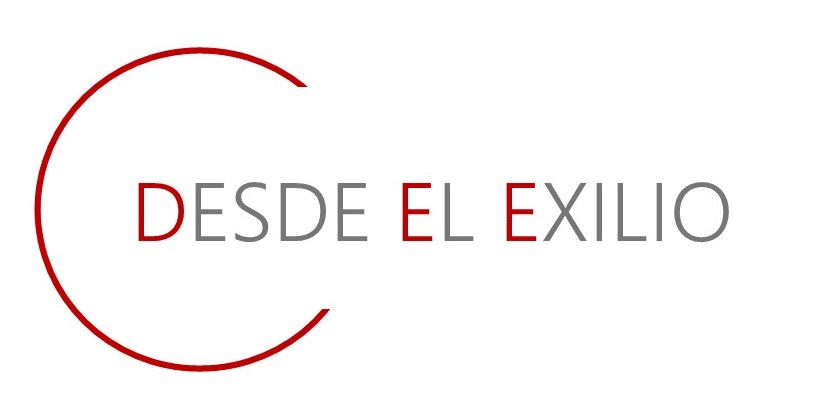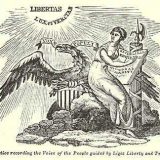Así se titula el artículo que Philip Jenkins publica en Foreign Policy y que os traigo entero por su gran interés. Me gustaría recabar vuestra opinión sobre las tesis de Jenkins, que creo pueden propiciar un bonito debate:
The West is awash with fear of the Islamization of Europe. The rise of Islam, many warn, could transform the continent into “Eurabia,” a term popularized by Harvard historian Niall Ferguson and other pundits. “A youthful Muslim society to the south and east of the Mediterranean is poised to colonize—the term is not too strong—a senescent Europe,” Ferguson has predicted. Such grim prophecies may sell books, but they ignore reality. For all we hear about Islam, Europe remains a stronger Christian fortress than people realize. What’s more, it is showing little sign of giving ground to Islam or any other faith for that matter.
To be fair, the trend is counterintuitive. Europe has long been a malarial swamp for any traditional or orthodox faith. Compared with the rest of the world, religious adherence in Europe is painfully weak. And it is easy to find evidence of the decay. Any traveler to the continent has seen Christianity’s abandoned and secularized churches, many now transformed into little more than museums. But this does not mean that European Christianity is nearing extinction. Rather, among the ruins of faith, European Christianity is adapting to a world in which its convinced adherents represent a small but vigorous minority.
In fact, the rapid decline in the continent’s church attendance over the past 40 years may have done Europe a favor. It has freed churches of trying to operate as national entities that attempt to serve all members of society. Today, no church stands a realistic chance of incorporating everyone. Smaller, more focused bodies, however, can be more passionate, enthusiastic, and rigorously committed to personal holiness. To use a scientific analogy, when a star collapses, it becomes a white dwarf—smaller in size than it once was, but burning much more intensely. Across Europe, white-dwarf faith communities are growing within the remnants of the old mass church.
Perhaps nowhere is this more true than within European Catholicism, where new religious currents have become a potent force. Examples include movements such as the Focolare, the Emmanuel Community, and the Neocatechumenate Way, all of which are committed to a re-evangelization of Europe. These movements use charismatic styles of worship and devotion that would seem more at home in an American Pentecostal church, but at the same time they are thoroughly Catholic. Though most of these movements originated in Spain and Italy, they have subsequently spread throughout Europe and across the Catholic world. Their influence over the younger clergy and lay leaders who will shape the church in the next generation is surprisingly strong.
Similar trends are at work within the Protestant churches of Northern and Western Europe. The most active sections of the Church of England today are the evangelical and charismatic parishes that have, in effect, become megachurches in their own right. These parishes have been incredibly successful at reaching out to a secular society that no longer knows much of anything about the Christian faith. Holy Trinity Brompton, a megaparish in Knightsbridge, London, that is now one of Britain’s largest churches, is home to the amazingly popular “Alpha Course,” a means of recruiting potential converts through systems of informal networking aimed chiefly at young adults and professionals. As with the Catholic movements, the course works because it makes no assumptions about any prior knowledge: Everyone is assumed to be a new recruit in need of basic teaching. Nor does the recruitment technique assume that people live or work in traditional settings of family or employment. The Alpha Course is successfully geared for postmodern believers in a postindustrial economy.
Alongside these older Christian communities are hugely energetic immigrant congregations. On a typical Sunday, half of all churchgoers in London are African or Afro-Caribbean. Of Britain’s 10 largest megachurches, four are pastored by Africans. Paris has 250 ethnic Protestant churches, most of them black African. Similar trends are found in Germany. Booming Christian churches in Africa and Asia now focus much of their evangelical attention on Europe. Nigerian and Congolese ministers have been especially successful, but none more so than the Ukraine-based ministry of Nigerian evangelist Sunday Adelaja. He has opened more than 300 churches in 30 countries in the last 12 years and now claims 30,000 (mainly white) followers.
Ironically, after centuries of rebelling against religious authority, the coming of Islam is also reviving political issues most thought extinct in Europe, including debates about the limits of freedom of speech, freedom of religion, and the right to proselytize. And in all these areas, controversies that originate in a Muslim context inexorably expand or limit the rights of Christians, too. If Muslim preachers who denounce gays must be silenced, then so must charismatic Christians. At the same time, any laws that limit blasphemous assaults on the image of Mohammed must take account of the sensibilities of those who venerate Jesus.
The result has been a rediscovery of the continent’s Christian roots, even among those who have long disregarded it, and a renewed sense of European cultural Christianity. Jürgen Habermas, a veteran leftist German philosopher stunned his admirers not long ago by proclaiming, “Christianity, and nothing else, is the ultimate foundation of liberty, conscience, human rights, and democracy, the benchmarks of Western civilization. To this day, we have no other options [than Christianity]. We continue to nourish ourselves from this source. Everything else is postmodern chatter.” Europe may be confronting the dilemmas of a truly multifaith society, but with Christianity poised for a comeback, it is hardly on the verge of becoming an Islamic colony.
Philip Jenkins is distinguished professor of history and religious studies at Penn State University and author of God’s Continent: Christianity, Islam, and Europe’s Religious Crisis (New York: Oxford University Press, 2007).





Vale, lo he encontrado:
Al final del mismo hilo, subido a las 9:50 pm del 7 de marzo, hay otro post interesante. Demasiado, tal vez.
¿Alguna vez se ha ido? A ver qué dice la madre superiora:
La hostia, o sea.
¿No eran todas las religiones iguales?
No se asuste, pero Jürgen Habermas dice que no.
¿Será Habermas uno de esos “teocon” de los que me han hablado, como el nazi Ratzinger?
No, la culpa va a ser de la gramática alemana; fíjese, desde que en el País Vasco abundan los sabios euscoparlantes, faltan los hombres de fe.
En serio, ni la apostasía multitudinaria ni la propaganda interesada desde los medios ni, siquiera, mis gansadas disminuyen un ápice la verdad de la fe y de sus contenidos, los genuinos, no las superfetaciones que han ido añadiendo los hombres desde otras vigencias sociales de época y etnia.
Lo que sí han hecho ha sido cambiar las vigencias sociales con lo cual las masas, que sólo viven de las dichosas vigencias no valoran ni son capaces de profesar esa fe como nutriente de su vida; tampoco valoran la “nación”, y también eso cambiará…
Y, sin embargo, me pregunto si alguna vez las masas, que son pasto de ideología y de vigencias, de modas, propagandas y tal, han podido vivir la fe de modo serio: como nutriente de su vida real, densa y profunda.
¿Eso no será cosa de pocos…?
Decía San Agustín (“Llámeme Agustín, por favor”) que el hombre bueno no es el que conoce el bien, sino el que lo ama. Ojito, pues, con la insinceridad, tanto en lo religioso como en la irreligioso, porque a la larga todo el que es inidéntico a su propio discurso termina por desacreditarse.
¿Pero entonces el tropel de agnostizantes y ateísmos…?
Aunque fueran muchos, durará menos que una pared blanca a las puertas del “insti”; las corrientes migratorias de opinión van y vienen como los búfalos de estampida: lo que tantos hacen hoy es posar, dar impresión de descreimiento, de falta de fe, como característica de nuestros tiempos, ya que ser de hoy parece exigir el brindis al sol, el guiño de complicidad antirreligioso y anticlerical. Muchos guiños en el espejo pero, al final, lo que no pocos intentan ver reflejado es un “Dios”. Por eso nos miramos tanto.
Sin ánimo de mofa, con un poco de guasa, el formato intelectual en que algunos se autoproclaman religiosos y antirreligiosos resulta en tantas y tantas ocasiones tan poco profundo y tan folclórico como éste: